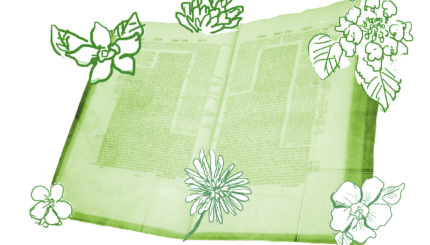On today’s page, the rabbis turn to the practice of bathing before the Sabbath begins. Bathing in the ancient world was more than a hygienic necessity, it was considered a delightful luxury — a wholly beautiful and appropriate way to begin Shabbat.
Rav Nahman bar Rava said Rav said: Kindling the Shabbat lamps is an obligation, whereas washing one’s hands and feet with hot water in the evening prior to Shabbat is merely optional. And I say: Washing is a mitzvah.
Rav Nahman bar Rava notes that Rav thought bathing before Shabbat is optional, but then offers his own counterview: it’s a mitzvah!
Today, most Jews do not consider a pre-Shabbat shower or bath an obligation, but many do enjoy bathing in preparation for the Sabbath; some Jews even visit a mikveh every Friday afternoon to spiritually prepare for the holiest day of the week. Indeed, what follows is a poetic account of one rabbi’s pre-Shabbat ritual:
Rav Yehuda said that Rav said that this was the custom of Rabbi Yehuda bar Elai: On Shabbat eve, they would bring him a bowl full of hot water and he would use it to wash his face, hands, and feet, and he would wrap himself, and sit in linen cloaks with ritual fringes, and he was like an angel of the Lord of hosts.
Warm water and a fresh garment set the tone for the day — and prove that for the rabbis, too, cleanliness was next to godliness. But the text continues to struggle with the debate between Rav and Rav Nahman — is bathing a custom or an obligation? A biblical prooftext is brought to bear:

Help us keep Jewish knowledge accessible to millions of people around the world.
Your donation to My Jewish Learning fuels endless journeys of Jewish discovery. With your help, My Jewish Learning can continue to provide nonstop opportunities for learning, connection and growth.
“And my soul is removed far off from peace, I forgot prosperity” (Lamentations 3:17).
What is: “And my soul is removed far off from peace”?
Rabbi Abbahu said: That is the lack of opportunity to engage in kindling the Shabbat lights.
And “I forgot prosperity,” Rabbi Yirmeya said, is the lack of opportunity to bathe in the bathhouse.
It seems that the ideal is to bathe before Shabbat and light candles. But while being unable to bathe is considered a hardship, failing to light candles is considered a much more severe privation.
As is their wont, the prooftext that couches lack of bathing in terms of poverty inspires the rabbis to become side-tracked in a discussion of what constitutes true wealth. Let’s join them.
Rabbi Yitzhak Nappaha said: Prosperity is a pleasant bed and the pleasant bedclothes that are on it.
Rabbi Abba said: It is a made bed, and a wife adorned for Torah scholars.
The Sages taught: Who is wealthy? Anyone who gets pleasure from his wealth, that is the statement of Rabbi Meir…
Rabbi Tarfon says: A wealthy person is anyone who has one hundred vineyards, and one hundred fields, and one hundred slaves working in them.
Rabbi Akiva says: Anyone who has a wife whose actions are pleasant.
Rabbi Yosei says: Anyone who has a bathroom close to his table.
We’ll leave you there, with best wishes for warm baths, comfortable bedding, a well-matched spouse, lots of material wealth (naturally, that was Rabbi Tarfon’s view — he was a materially wealthy man), and (perhaps most important?) a bathroom close at hand. But as the sages teach us, whatever you have, you are only really wealthy if you can appreciate it.
Read all of Shabbat 25 on Sefaria.
This piece originally appeared in a My Jewish Learning Daf Yomi email newsletter sent on March 31, 2020. If you are interested in receiving the newsletter, sign up here.



